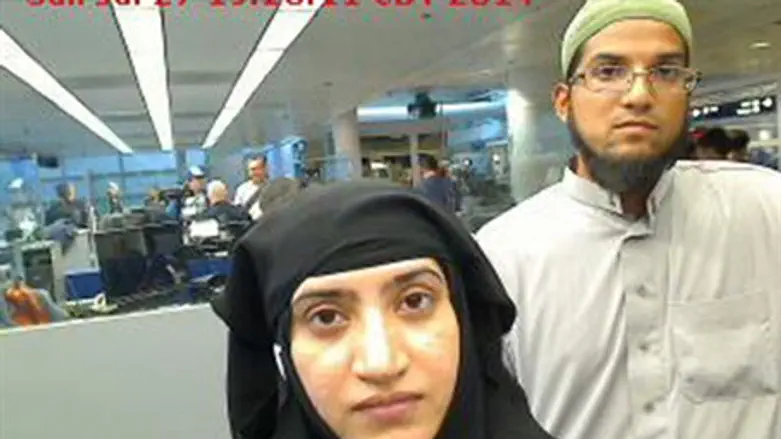
Apple must help the FBI break into an iPhone belonging to one of the killers in December’s San Bernardino shootings, a federal judge ordered Tuesday, according to USA Today.
Tashfeen Malik and her husband, Syed Farook, shot and killed 14 people on December 2, and died hours later in a gun battle with police. The iPhone was recovered from the vehicle in the aftermath of the attack.
The ruling from U.S. Magistrate Sheri Pym requires Apple to provide the FBI with software that can disable the security feature that erases data from the iPhone after too many unsuccessful attempts to unlock it.
Federal prosecutors had told the court they could not access the phone used by Farook because they don’t know his passcode. With the security feature disabled, they can attempt as many combinations necessary to unlock the iPhone, noted USA Today.
Apple could not be immediately reached for comment.
The FBI has said that Farook and Malik were both radicalized "for quite some time" and had taken target practice at Los Angeles-area shooting ranges, one of them "within days" of the massacre.
It is believed Farook had contact with people from at least two terrorist organizations overseas, and investigators have also said Malik had pledged allegiance to the Islamic State (ISIS) group in a Facebook posting.
Last week, according to USA Today, FBI Director James Comey told a Senate panel that investigators still have not been able to unlock the encrypted cellphone of one of the terrorists who carried out the attack.
"We still have one of those killer's phones that we haven't been able to open," Comey was quoted as having told members of the Senate Intelligence Committee during a hearing on threats to the homeland. "It's been over two months now. We are still working on it."
Comey made the comments in response to questions from senators about how encrypted cellphones and other electronic devices can hinder investigations because they cannot be unlocked, even by the companies that made them.
Following Tuesday’s ruling, Los Angeles U.S. Attorney Eileen Decker said the move to unlock the phone represented an attempt to “exhaust every investigative lead in the case.’’
"We have made a solemn commitment to the victims and their families that we will leave no stone unturned as we gather as much information and evidence as possible,’’ Decker was quoted as having said. "These victims and families deserve nothing less. The application filed today in federal court is another step — a potentially important step — in the process of learning everything we possibly can about the attack in San Bernardino.”